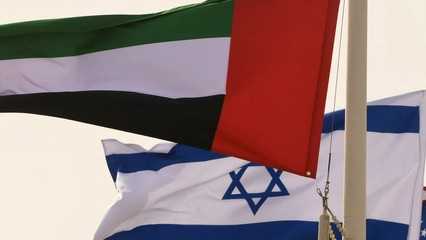
22 June 2022; MEMO: A new joint venture into Africa between the UAE and Israel has been agreed in a deal that will see Tel Aviv reap further rewards from the Arab country's normalisation with the apartheid state.
In what appears to be an example of the use of soft-power, Etihad Credit Insurance (ECI), the UAE's federal export credit company, and Israel Export Insurance Corp Ltd (Ashra) have signed an agreement to fund a $147 million healthcare project in Ghana.
"The ECI's efforts will help to boost momentum from our recently signed trade deal with Israel and unlock new trade and investment opportunities across the Middle East, Africa and beyond," Dr Thani Bin Ahmed Al Zeyoudi, minister of state for foreign trade and deputy chairman of the ECI's Board of Directors, is reported saying in the Gulf News.
Al Zeyoudi also mentioned that in the first quarter of 2022, the total value of non-oil trade between the UAE and Israel exceeded the $1 billion mark. He added that there is much more room to grow.
Earlier this year Ghana expressed its interest to deepen economic cooperation with UAE. President of Ghana Nana Akufo-Addo described his excitement in growing bilateral ties between the two nations and lauded the "constructive cooperation approach adopted by the UAE."
The value of non-oil foreign trade between the UAE and Ghana amounted to $2.7 billion in 2021, reflecting a 25 per cent growth compared to 2020 – and 56 per cent compared to 2019. Ghana is among the most important African markets for the UAE's non-oil trade.
Abu Dhabi's ambitious plan for Africa is well-known. Described as a country that punches above its weight, the oil rich state has been expanding its influence in the continent. In the Horn of Africa, the UAE has set up its military force, with the objective to deploy it in Yemen against the Houthi forces.
At the same time, Abu Dhabi has developed close ties with the military institutions of many African countries, where it replicates its "Egyptian model" (Sudan, Mauritania) to contain the perceived threat of Islamist movements.
Countries such as the UAE and Israel that seek to expand their influence abroad gain entry into a foreign region through what is often referred as "soft power", which is the ability to shape and influence behaviour and policy without the use of force.




